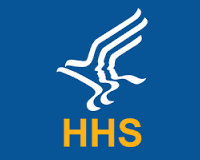No Surprises Act Takes Effect: Sets New Billing Limits and Fee Disclosures for Doctors

Key provisions of the No Surprises Act took effect January 1, and with it comes new billing limits and fee disclosures for physicians.
The law was intended to protect insured patients from large bills that can arise when they receive care from out-of-network doctors they did not choose. Last year, federal agencies published two interim final rules and another proposed rule to implement the law.
The rules apply to emergency or hospital-based care: For insured patients at network facilities, plans must cover such care at in-network rates. The law also prohibits out-of-network doctors in such cases from billing patients more than the in-network cost-sharing amount allowed by their plans. The regulations set a penalty of up to $10,000 for each violation.
New Fee Disclosure Rules for Office-Based Care
The rules also create new paperwork requirements for psychiatrists and other health care professionals providing office-based care: They must now provide a “good faith estimate” of expected charges to all uninsured patients or those who intend to self-pay. Such estimates must be provided whenever services are scheduled or whenever a patient requests an estimate.
Physicians’ fee estimates must be in a written document that is clear and understandable. Physicians must also post a notice on their website informing patients of their right to a good faith estimate. The Centers for Medicaid and Medicare Services (CMS) has created a template for both disclosures. The regulations establish a new patient-provider dispute-resolution process for cases in which the billed charges exceed by $400 or more the good faith estimate.
Physicians, Hospitals File Suit
What happens when plans and physicians providing emergency or hospital-based care at in-network facilities cannot come to terms on payments? The regulations specify that when disputes arise, the payment should be based on health plans’ median rate paid to in-network providers in their geographic area.
The AMA and American Hospital Association (AHA) filed a lawsuit against the federal government in December, charging that the new regulations governing disputes unfairly limits consideration of other factors and benefits commercial health insurance companies.
“The lawsuit argues that the regulations are a clear deviation from the law as written and all but ensure that hospitals, physicians, and other providers will routinely be undercompensated by commercial insurers, and patients will have fewer choices for access to in-network services,” according to a joint AMA/AHA statement.
For more information, see the Psychiatric News article “No Surprises Act Brings New Billing Rules, Disclosures; Doctors Sue” and APA’s guidance for psychiatrists on the No Surprises Act.
(Image: iStock/Casper1774Studio)
Don't miss out! To learn about newly posted articles in Psychiatric News, please sign up here.






